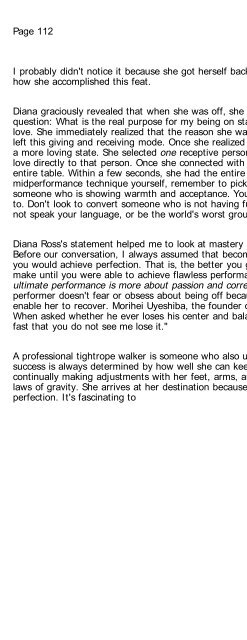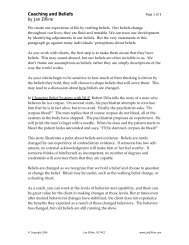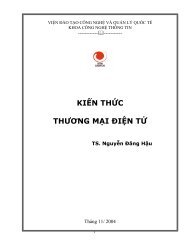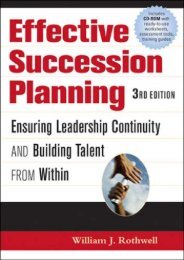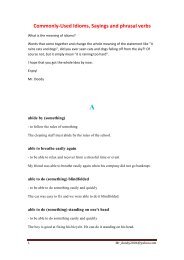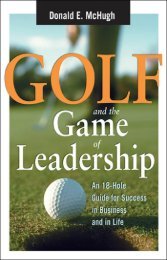1. The 15-Second Principle
1. The 15-Second Principle
1. The 15-Second Principle
Create successful ePaper yourself
Turn your PDF publications into a flip-book with our unique Google optimized e-Paper software.
Page 112<br />
I probably didn't notice it because she got herself back on track very quickly. Fascinated, I asked her just<br />
how she accomplished this feat.<br />
Diana graciously revealed that when she was off, she regained her focus by asking herself a simple<br />
question: What is the real purpose for my being on stage? Her instant response was to give and receive<br />
love. She immediately realized that the reason she was off was that she had become distracted and had<br />
left this giving and receiving mode. Once she realized this, she took specific actions to bring herself back to<br />
a more loving state. She selected one receptive person at a nearby table and started singing and sending<br />
love directly to that person. Once she connected with this person, she expanded her focus by including the<br />
entire table. Within a few seconds, she had the entire room back in her command. (When applying this<br />
midperformance technique yourself, remember to pick a person who is already enjoying your performance,<br />
someone who is showing warmth and acceptance. You need an immediate and receptive safe harbor to sail<br />
to. Don't look to convert someone who is not having fun—he or she might have had a death in the family,<br />
not speak your language, or be the world's worst grouch.)<br />
Diana Ross's statement helped me to look at mastery and performing excellence in a totally new light.<br />
Before our conversation, I always assumed that becoming a consummate performer meant that eventually<br />
you would achieve perfection. That is, the better you got at performing, the fewer mistakes you would<br />
make until you were able to achieve flawless performances. After our conversation, I realized that an<br />
ultimate performance is more about passion and correction than it is about perfection. <strong>The</strong> ultimate<br />
performer doesn't fear or obsess about being off because she knows how to take specific actions that will<br />
enable her to recover. Morihei Uyeshiba, the founder of aikido, also views excellence in a similar fashion.<br />
When asked whether he ever loses his center and balance, he replied, "Yes, all the time, but I regain it so<br />
fast that you do not see me lose it."<br />
A professional tightrope walker is someone who also understands the importance of corrections. Her<br />
success is always determined by how well she can keep herself balanced as she walks a fine line. By<br />
continually making adjustments with her feet, arms, and head, she is able to work in harmony with the<br />
laws of gravity. She arrives at her destination because she has become a master of correction, not<br />
perfection. It's fascinating to


